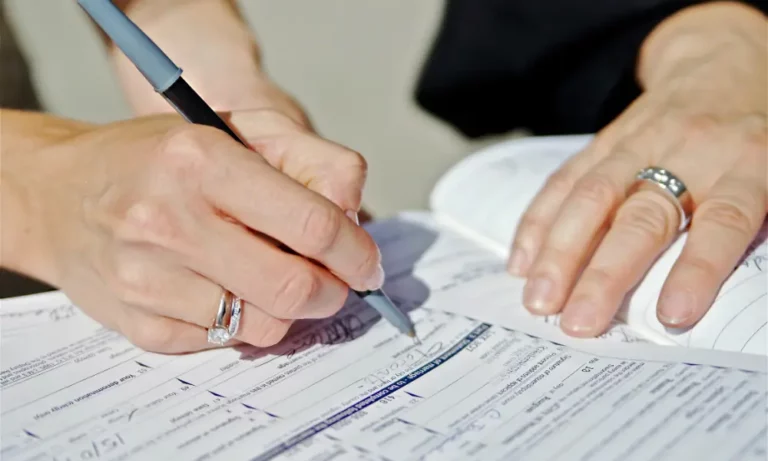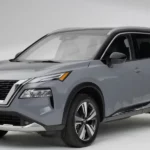Getting your car registered in North Carolina doesn’t have to be a headache. You’ll need a few key things to get started with the NC Division of Motor Vehicles. To register your vehicle in North Carolina, you’ll need a valid driver’s license, proof of insurance, and a safety inspection.
Don’t worry if you’re new to the state or just bought a car. This guide will walk you through the steps to get your North Carolina vehicle registration sorted out quickly. We’ll cover what documents you need, where to go, and how to save time in the process.
Stick around to learn some helpful tips that could make your trip to the DMV smoother. You might even find out about options you didn’t know existed for handling your vehicle registration.
Eligibility Requirements
To register a vehicle in North Carolina, you need to meet certain criteria. The rules vary based on your residency status and the type of vehicle you own.
New Residents in North Carolina
If you’re new to North Carolina, you’ll need to register your vehicle within 60 days of moving. You’ll need a valid North Carolina driver license or an out-of-state license with a North Carolina Temporary Driving Certificate.
Bring your out-of-state title to transfer ownership. If you have a lien, contact your lender to have the title sent to the NC DMV.
You’ll also need:
- Proof of address (utility bill, lease agreement)
- Proof of insurance
- Payment for fees and taxes
Remember to get a safety inspection within 10 days of registration. Some counties require emissions tests too.
Current Residents with New Vehicles
Bought a new car? Great! You have 28 days to register it. Here’s what you’ll need:
- Your North Carolina driver license
- Proof of ownership (usually the title or Manufacturer’s Certificate of Origin)
- Proof of insurance
- Payment for fees and taxes
New cars don’t need an inspection right away. You’ll get a temporary tag to use until your permanent plates arrive.
Motorcycles and Other Vehicle Types
Motorcycles follow similar rules to cars. You’ll need:
- A valid driver license with a motorcycle endorsement
- Proof of ownership
- Proof of insurance
- Payment for fees and taxes
For other vehicles like trailers or RVs, the process is similar. Bring proof of ownership and be ready to pay fees.
All motorcycles need a safety inspection annually. Some counties require emissions tests for larger bikes.
Remember, you can’t register ATVs or dirt bikes for road use in North Carolina.
Documents Needed for Registration
To register your vehicle in North Carolina, you’ll need several important documents. These papers prove ownership, insurance coverage, and vehicle condition. Let’s look at what you’ll need to gather before visiting the DMV.
Proof of Car Insurance
You must show that your vehicle is insured before registering it. North Carolina requires all drivers to have liability insurance. Bring your insurance card or policy declaration page to the DMV. Make sure it’s current and shows:
- Your name
- Policy number
- Effective dates
- Vehicle information
Keep this proof in your car at all times. If you change insurance companies, update the DMV within 10 days.
Vehicle Title and Titling
Your car’s title is a crucial document for registration. It proves you own the vehicle. If you bought your car from a dealer, they usually handle the titling process. For private sales, you’ll need to transfer the title to your name.
To title your vehicle, you’ll need:
- The original title, signed by the previous owner
- A completed MVR-1 Title Application form
- Payment for title fees
If there’s a lien on your car, the lienholder may hold the title. In this case, bring your loan documents to the DMV.
Odometer and Damage Disclosures
North Carolina requires odometer and damage disclosures for most vehicles. These forms help protect buyers from fraud.
For the odometer disclosure:
- Fill out the MVR-180 form
- Record the current mileage
- Both buyer and seller must sign
The damage disclosure reveals any major damage to the vehicle. Be honest about accidents or repairs over $1,500. False statements can lead to legal troubles.
Identification and Other Forms
You’ll need to prove who you are when registering your car. Acceptable forms of ID include:
- North Carolina driver’s license
- State-issued ID card
- Military ID (for active duty personnel)
Other helpful documents:
- Bill of sale (for private purchases)
- Proof of address (if your license doesn’t show your current address)
- Payment for registration fees
If you’re new to North Carolina, you may need extra paperwork. Bring your out-of-state registration and title to speed up the process.
Vehicle Inspections and Fees
In North Carolina, you need to get your car checked and pay some fees before you can register it. Let’s look at what inspections you need, how much it costs, and the taxes you’ll pay.
Safety and Emissions Inspections
Your car needs a safety inspection every year in North Carolina. A mechanic will check your:
- Headlights
- Brake lights
- Turn signals
- Tires
- Brakes
- Steering
If you live in one of 19 counties, you also need an emissions test. This makes sure your car isn’t polluting too much.
You can get these checks up to 90 days before your registration expires. The safety check costs $13.60. If you need an emissions test too, that’s another $30.
Calculating Registration Fees
Your registration fee depends on a few things:
- The type of vehicle you have
- How much it weighs
- If it’s electric or hybrid
For most cars, you’ll pay a base fee of $38.75. Bigger vehicles cost more. Electric cars have an extra fee of $140.25. Hybrids pay $26.25 extra.
Remember, you’ll need to pay these fees every year when you renew your registration.
Property Taxes on Vehicles
In North Carolina, you pay property tax on your car along with your registration. The tax is based on how much your car is worth. The more valuable your car, the more tax you pay.
You’ll get a bill that shows both your registration fee and your property tax. You need to pay both to renew your registration.
The good news is you only have to make one payment. The DMV collects the money and sends the tax part to your county.
The Registration Process
Registering a vehicle in North Carolina involves a few key steps. You can choose to register in person, online, or by mail depending on your situation. Some cases may require special handling.
Registering a Vehicle in Person
To register your vehicle in person, visit an NC DMV Office or License Plate Agency. Bring your vehicle title, proof of insurance, and a valid ID. You’ll need to fill out Form MVR-1 for title application. The staff will check your documents and collect fees.
Fees include title fee, license plate fee, and vehicle property tax. Payment methods accepted are cash, check, or credit card. They’ll give you a license plate and registration card on the spot.
If you have any registration stops, like unpaid tickets, you’ll need to clear those first.
Online and Mail Registration Options
You can renew your vehicle registration online if you’ve received a renewal notice. The online system is user-friendly and saves time.
For mail renewals, fill out the form on your renewal notice. Send it with your payment to the address listed. Allow extra time for processing.
Both options require current insurance and no outstanding fees. You’ll get your new registration card and sticker in the mail within a few weeks.
Handling Special Circumstances
If you’re new to North Carolina, you have 60 days to transfer your out-of-state registration. You’ll need to visit a DMV office in person with your old title and registration.
For newly purchased vehicles, you might get a Temporary Driving Certificate from the dealer. This lets you drive while your permanent registration is processed.
If you miss your renewal deadline, you might face late fees. In some cases, you may need to get a new inspection before you can renew.
Keeping Your Registration Current
Staying on top of your vehicle registration in North Carolina is crucial. It helps you avoid fines and keeps you legal on the road. Let’s look at how to keep your registration up-to-date.
Renewal Notices and Deadlines
The North Carolina DMV sends out renewal notices before your registration expires. These notices remind you when it’s time to renew.
You can renew online, by mail, or in person at a license plate agency. The deadline is the last day of the month shown on your plate sticker.
To renew, you’ll need:
- Your license plate number
- Up-to-date insurance info
- Payment for fees
Don’t wait for a notice to renew. If you don’t get one, you’re still responsible for renewing on time.
Penalties for Late Registration
If you miss your renewal deadline, you’ll face late fees. These can add up quickly.
Late fees in North Carolina include:
- $15 for being 1-month late
- $20 for 2 months late
- $25 for 3 months or more late
Besides fees, driving with expired tags can lead to tickets. You might also have trouble with:
- Unpaid child support
- Lack of insurance
- Credit warnings
These issues can block your renewal. It’s best to address them quickly to avoid more problems.
Dealing with Lost or Damaged Registration
Lost your registration card? Don’t worry. You can get a new one easily.
To get a duplicate registration, you’ll need:
- Your North Carolina driver’s license
- Proof of insurance
Visit a local DMV office or call 919-715-7000 for help. There’s a small fee for a new card.
If your plate is damaged, you can get a new one. Bring your old plate to a DMV office. They’ll give you a new one for a fee.
Remember, keeping your registration info safe and current helps you avoid hassles on the road.















